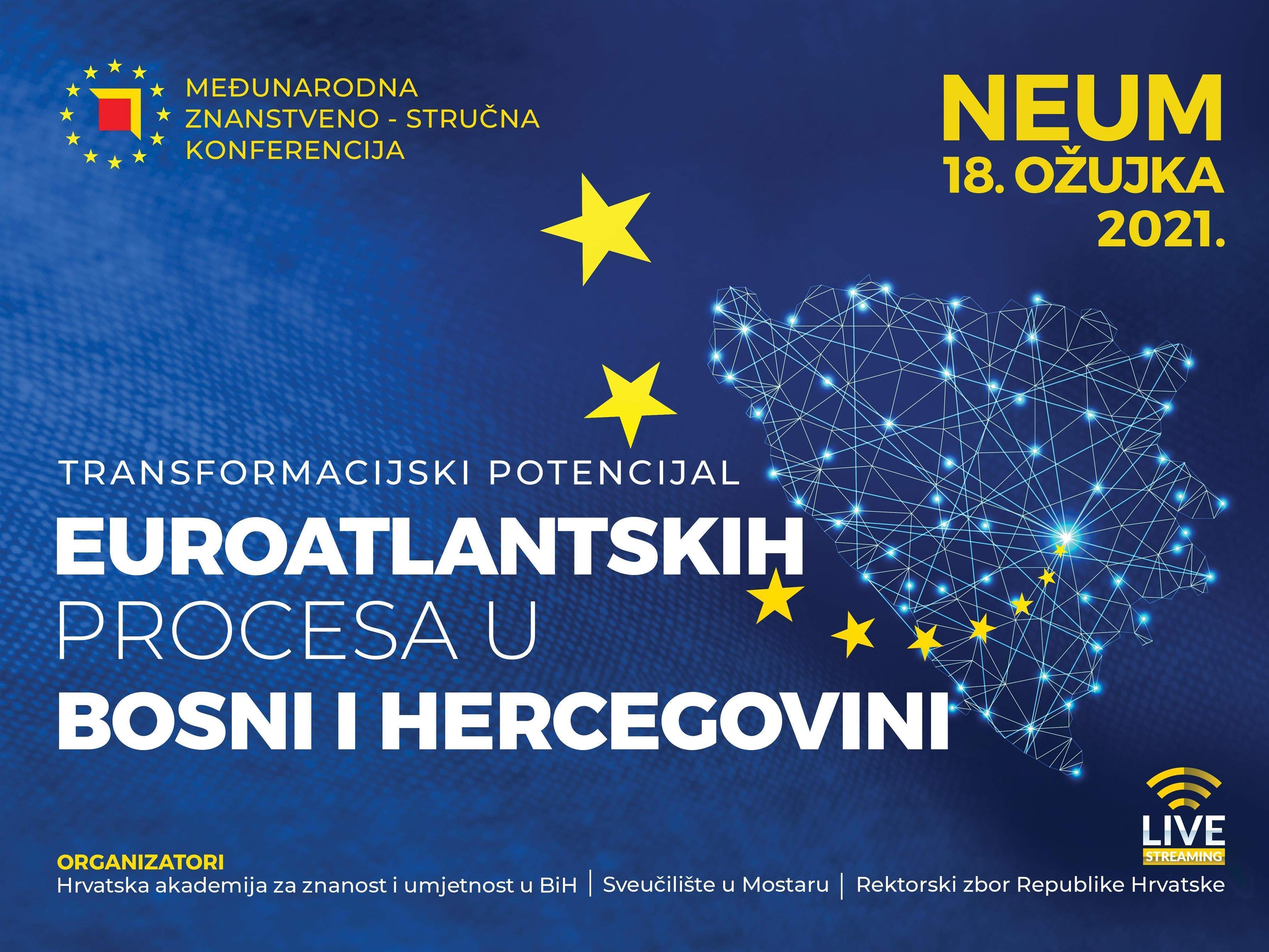

Transformation potential of Euro-Atlantic processes in Bosnia and Herzegovina
Transformation potential of Euro-Atlantic processes in Bosnia and Herzegovina
The conference Transformation Potential of Euro-Atlantic Processes in Bosnia and Herzegovina is due to be held in Neum on Thursday, 18 March, organised by the University of Mostar, the Croatian Academy of Sciences and Arts in B&H and the Rectors' Council of the Republic of Croatia. The Conference reflects the continuity of the cycle on the significant social and political issues that burden Dayton Bosnia and Herzegovina.
The conference is to be held online, including a small number of participants live at the Grand Hotel Neum starting at 10.00. The video streaming link will be available on the website of the University of Mostar.
Three panels are planned for the conference. "European political values as a prerequisite for the permanent consolidation of transitional societies" is the first panel during which Prof Christopher Mccrudden, PhD, Prof Ugo Vlaisavljević, PhD, Prof Francesco Palermo, PhD, Prof Jure Zovko, PhD, Dejan Vanjek, PhD, and Josep Borrell will discuss. The moderator will be Dražen Barbarić.
At the panel "Federalism as a means of building a multinational democratic society", Prof Min Reuchamps, PhD, Prof Sumantra Bose, PhD, Prof John Kincaid, PhD, Prof Eva Maria Belser, PhD, Prof Nico Steytler, PhD, Prof Alain Gagnon, PhD, Prof Allison Mcculloch, PhD, and Prof Gordon N. Bardos, PhD, will give their contribution to the conference, while the panel will be moderated by Sanja Vlaisavljević.
"How to overcome the post-conflict of B&H society through EU and NATO integration?" is the third panel where Gordan Grlić Radman, Miroslav Lajčak, Peter Sztaray, Eric Nelson, Johann Sattler, Prof Erhan Turbedar, PhD, Oliver Vsrhelyi and Mircea Geoana will talk. The moderator is Josip Brkić. Academician Mladen Bevanda will conclude the conference.
The conference will link domestic political issues with B&H's foreign policy priorities, which are primarily recognised in the processes that have their origins in membership in the European Union and NATO. It will provide an intellectually advanced environment for ideas and reflections that enrich and inform relevant political actors in B&H and abroad, especially given the moment of the conference when B&H is at a crossroads in terms of current processes, to resolve key political challenges such as changes to the Election Law and potential changes to the Constitution.
Participants will also discuss federalism as a means of affirming democratic societies and their stabilisation. Regardless of the considerations of whether B&H needs federalism at all, the available forms of its optimal realisation will be considered to the extent that it represents a response to the basic needs of its peoples and in the interest of building coexistence.